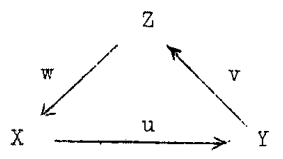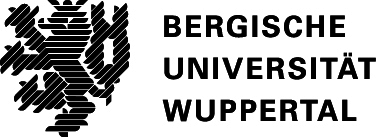Schedule [PDF]
The first talk will start on Monday at 10:00 am, and the last one on Friday will end at 3:00 pm.
Mini-coursesPaul Balmer: Tensor-triangular geometry.Tensor-triangular geometry is an umbrella subject, under which we study triangulated categories from a multitude of different origins with a particular emphasis on the added rigidity provided by the existence of a tensor product. The theory begins with the problem of classifying small enough objects and this problem admits both a theoretical answer and topic-specific answers in examples. This theory also provides insights into the global organization of otherwise intimidatingly abstract categories. One of the important tools developed in examples has been the use of `fields' in the form of ordinary commutative algebra fields in algebraic geometry, of Morava K-theories in topology and of pi-points in modular representation theory. The lecture series will end with a discussion of an abstract approach to the concept of tensor-triangular field and how to unify the above examples and sometimes improve upon them. Baptiste Calmès: The triangulated category of motives of Voevodsky and its quadratic refinements.In algebraic topology, to capture properties of spaces, one usually computes invariants such as homotopy groups or (co)homology groups, like singular homology, K-theory or cobordism groups. The general framework developed to encompass such computations is the homotopy category of topological spaces, its stable version, the stable homotopy category, and its linear counterpart the derived category of abelian groups. Both these last two categories are naturally triangulated, and the classical (co)homology theories are representable in there. In algebraic geometry, the situation is analogous, but much richer, because algebraic varieties are more than mere topological spaces, they are functors of points: over every extension of their base ring, they have points, reflecting information of algebraic and arithmetic nature. Carrying out the construction of a suitable (stable) homotopy category, together with a derived category of complexes requires the investment of extra theoretical tools, such as the use of Grothendieck topologies, when revisiting algebraic topology constructions. The resulting categories are referred to as "motivic", because they originate in ideas of Grothendieck on "motives", and they have been constructed by Morel, Voevodsky and others. More recently, to fix some issues related to so-called transfers in the derived category of motives of Voevodsky, leading for example to cohomology theories of interest (such as hermitian K-theory) not being representable, new motivic categories involving quadratic forms have been developed by Fasel, Déglise, Østvær , Bachmann and myself. I will give an overview of the construction of the various triangulated categories and functors appearing in this motivic world, from the now classical to the more recent refinements. tba Tobias Dyckerhoff: Topological Fukaya categories.Various categorical descriptions of Fukaya categories can be interpreted as categorifications of corresponding computations of (co)homology. This suggests the possibility for defining and studying suitable classes Fukaya categories within combinatorial-topological categorical frameworks. I will describe an approach for Riemann surfaces (and symmetric powers of such) based on variants of Waldhausen's S-construction in the context of stable infinity-categories. One key point of the lecture series will be to provide an introduction to the relevant infinity-categorical techniques and to see how they get applied in practice. Research talksMarc Hoyois: Excision for motivic cohomology theories.Henning Krause: Derived categories of hereditary algebras.Alice Rizzardo: Many examples of non-Fourier-Mukai functors.Stefan Schwede: Algebraic, topological, and exotic triangulated categories.Maxim Smirnov: Derived categories of homogeneous spaces and quantum cohomology.Contributed talks:(topics choosen by the organizers)Andreas Barei: A derived perspective on representation theory of finite groups.Ian Coley: An introduction to model categories.Jeroen Hekking: Simplicial sets, spectra and their homotopy categories.Patryk Jasniewski: Semiorthogonal decomositions and exceptional sequences in algebraic geometry.Janina Letz: Frobenius categories and the Grothendieck group K0. |

|
|||||||||||||||||||||||||||||||||||||||||||||||||||||||

|

|